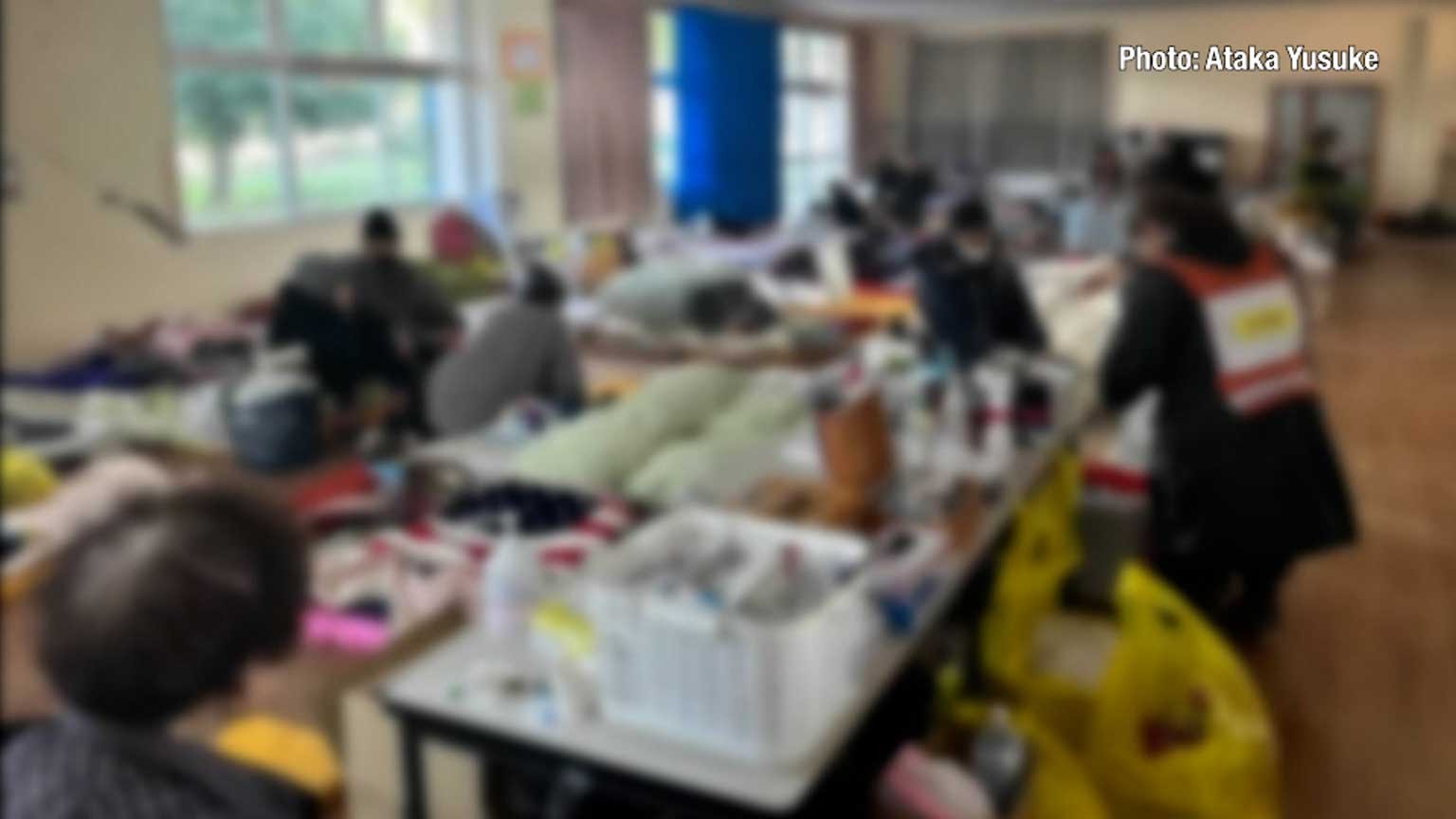People in the shelters are facing difficulties obtaining daily necessities, including water. The Defense Ministry says there is insufficient manpower at local authorities to deliver relief goods.
One of the biggest concerns is the health impact of the deteriorating sanitary conditions at the shelters.
Concerns over physical health
In Suzu City, Komachi Yoshifumi is involved in the operation of a shelter where water has been cut off. He says the toilets are the biggest problem and that, with no tap water available, they get dirty and ill-smelling.
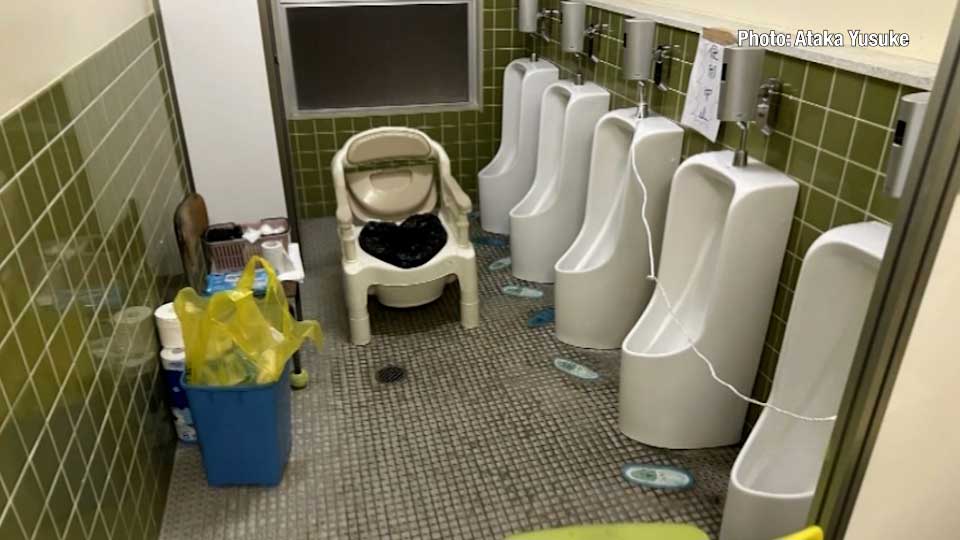
Two temporary toilets have been set up. But they are not sufficient for the shelter, where about 350 people are staying.
In fact, some people have begun complaining of ill health.
Komachi says some evacuees have developed a fever. He says unsanitary conditions could cause infections, which must be prevented.
Nurses have been dispatched to a shelter in Nanao City to check on the health of evacuees.
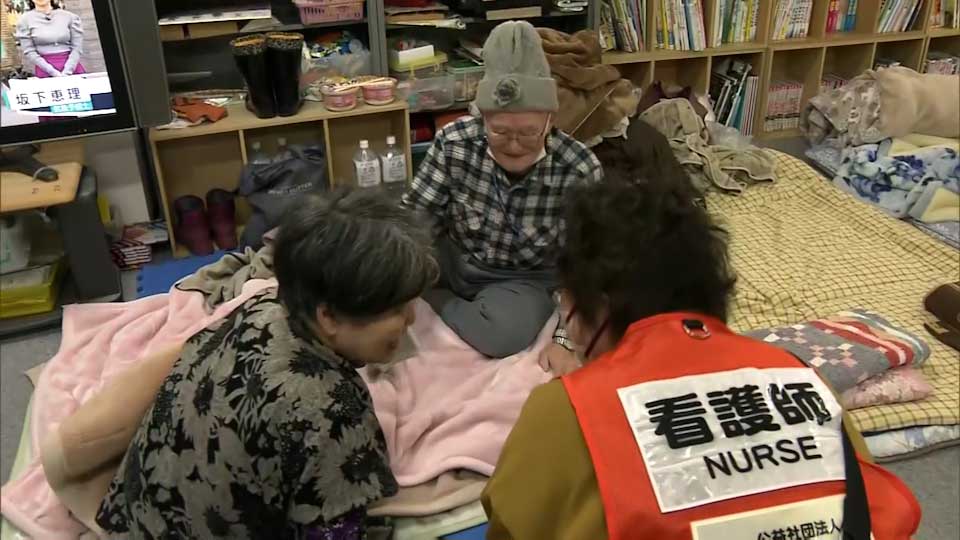
They are asking them to clean their hands frequently to prevent infections from spreading.
Nurse Toramoto Mikae says the question is how people can keep their hands clean at a time when tap water is not available. She says the health condition of evacuees must be checked frequently, not only to protect them from the coronavirus but also from flu, which is spreading these days.
Tips to keep healthy
Specially-appointed Professor Kaku Mitsuo of Tohoku Medical and Pharmaceutical University warns that an infectious disease, such as flu, could begin to spread after a week at an evacuation center.
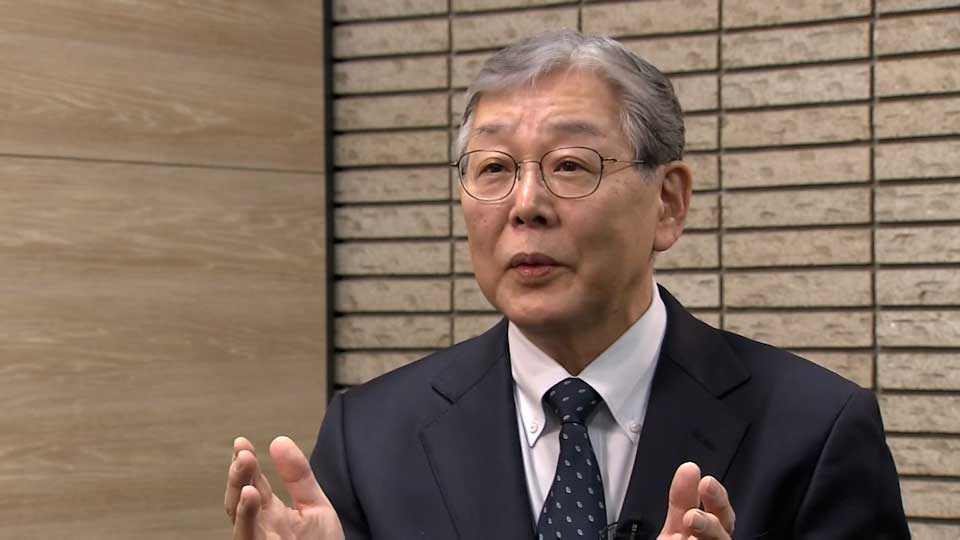
Professor Kaku says evacuees living without running water can reduce the risk of infectious diseases by small actions. These include wetting a tissue with water from a bottle, if available, to wipe their hands.
Should one feel such symptoms as coughing and fever, Kaku urges that they should not hold back and they should immediately ask for help, which Japanese people may sometimes be reluctant to do.
He says in the aftermath of the 2011 disaster, many people tried to endure the discomfort or pain out of concern for causing other people trouble.
Kaku says should symptoms develop, one must notify others without reservation, hesitation, or fear.
Concerns over mental health
One of the challenges of caring for people at an evacuation center is providing adequate mental care. A mental health expert says psychological problems could cause physical issues.
Doctor Kuwayama Norihiko says the most common symptoms evacuees show are insomnia, loss of appetite or, in some cases, unusual levels of increased appetite. He says the extraordinary experience resulting from a disaster could push peoples psyche to the limit.
Kuwayama says this can result in physical issues, and that's why caring for mental issues is, he thinks, the most important of all.
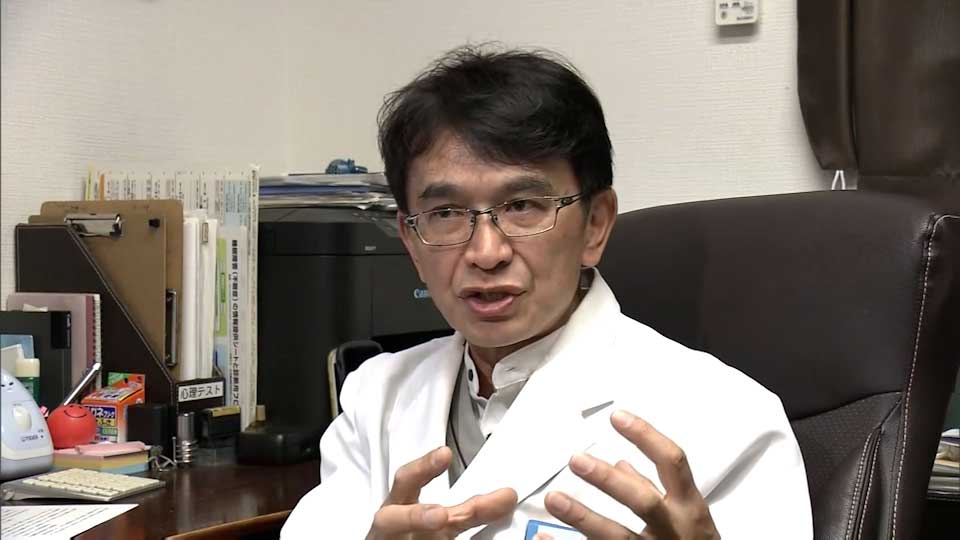
Kuwayama adds that the best way for evacuees to maintain their mental health is to connect with others.
He recommends people spend time with others when they can.
He says that under normal conditions people can take care of their own mental health. He stresses that humans can recreate memories and regain their emotional stability by expressing their experiences in words. He adds that talking to others about how they feel is the key to maintaining their mental well-being.
Communicating with others also involves listening. He says people may feel surprised or uncomfortable if they hear someone tell a survival story, but they should try to accept the feelings of the person talking by saying, "it must have been very hard," or " you must have felt very sad."
Kuwayama has this to say about what people can do to help others.
He says the first step is to identify whether the person is being troubled by a stressful condition or by a traumatic experience.
He notes those who are stressed may regain mental health after the thing that was causing stress is removed, such as a disruption to water or electricity supplies.
However, Kuwayama warns that those who have been traumatized cannot regain their mental health so easily, as they have already been deeply hurt.
He says that's why caring for traumatized people is very important.
He adds that the key is not to force them to speak, but to give them chances to talk when they feel comfortable to do so.
